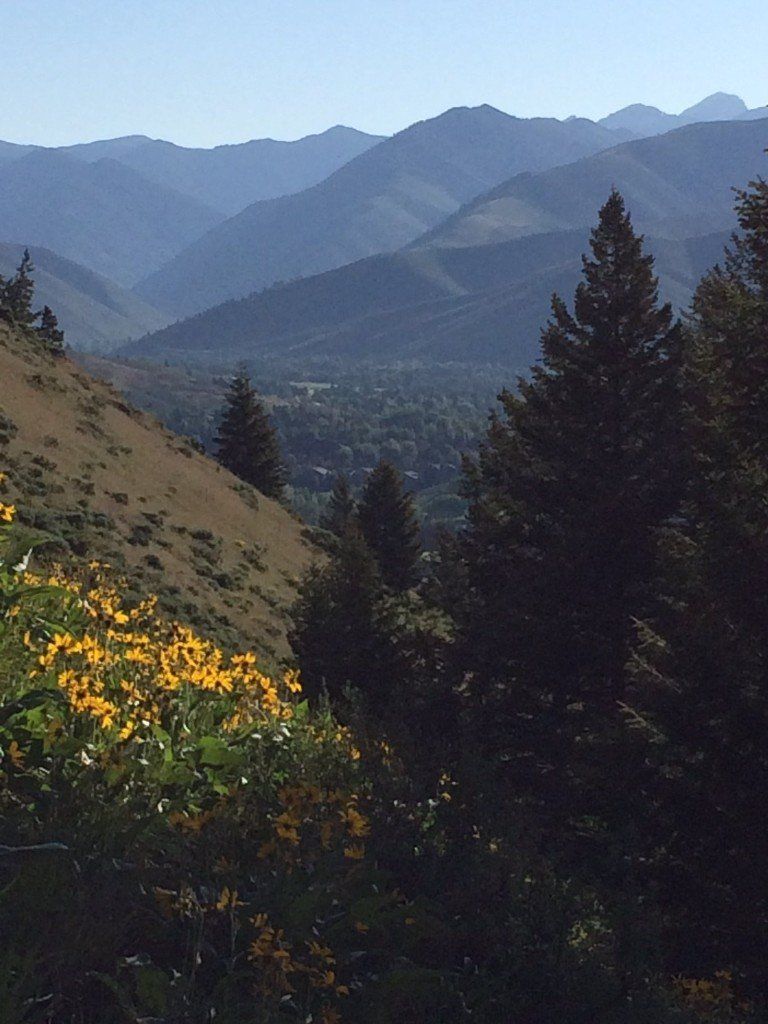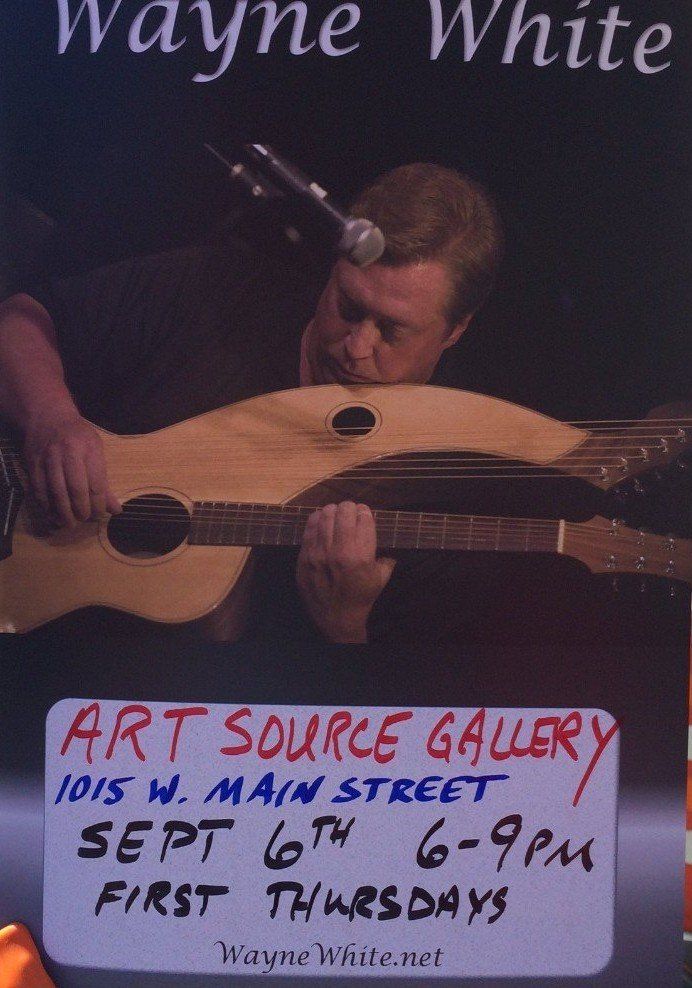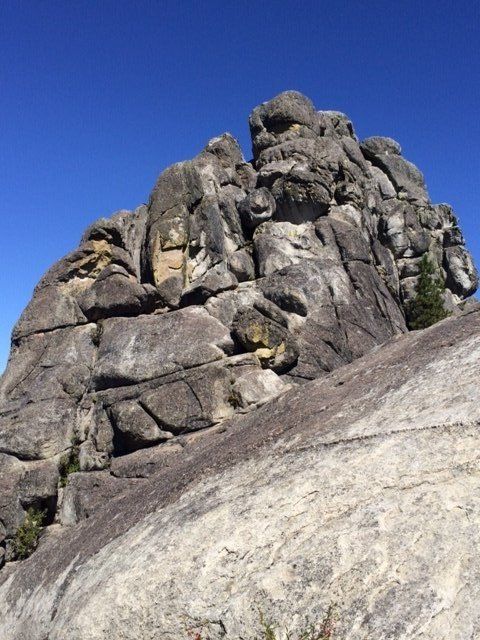Public Spaces
Encountering random, diverse, wild, and unexpected beauty in this world
“Public space is the space we share with strangers, the unsegregated zone.” Rebecca Solnit
Public Space
by
Kelly Anderson
Printed on a plain white piece of letter-size paper and tacked to a wooden fence post was a sign. It wasn’t a fancy, permanent sign, but it served its purpose. “Be Bear Aware”. I paused and looked around.
It wasn’t just the message that caught my eye (although that was worthy of my attention.) The incongruity also grabbed me. Less than twenty paces away from this post with its little paper sign was the magnificent River Run Lodge of the Sun Valley Ski Resort. With its brick entrance across the Wood River, vibrant display of summer flowers, and multi-million dollar day lodge, it is known as the playground of the rich and famous. Bear? Here?!?
This was late July, so instead of white slopes, movie stars, and millionaires, the area was bustling with downhill mountain bike daredevils. But no doubt, underneath the full-face helmets, knee pads, and protective jackets, there were probably a few celebrities, U.S. Congressmen, and Fortune 500 execs. Yet, where I stood, on a gravel service road just about 50 feet away from the rustic opulence, was the sobering warning to watch out for bears. Another sign at the trailhead, about 50 paces past the first sign, confirmed the risk. A black bear and her cub had been seen hanging around the area.
As I forged ahead, up the steep Bald Mountain trail, rising above the river and through the trees - and humming to alert the big momma of my presence - I thought about the contrast. The famous ski resort actually operates under a special use permit on Forest Service and BLM lands. Thus, when you’re not enjoying the pricey gondolas, high-speed quad chairlifts, and immaculately maintained mega-million dollar lodges, you are on public land; common space available for all to use, regardless of bank account or social standing. As much as I love the luxurious comforts offered by 5-star resorts, I also love free, open space.
In our society, private space is what we tend to seek. The big goal is to be able to afford as much privacy as possible. We strive to own our own home, where we can put up a fence and completely control our living environment, and who we allow into that environment. We buy memberships into private clubs, where we surround ourselves with people who share our same interests, have a comparable bank account, and enjoy an appropriate social standing. And we seek out exclusive restaurants and resorts where the quality of service, food, and ambiance commands a price which insures we’ll be amongst our equals. And we buy $42 passes to ride a gondola to the top of Bald Mountain on a beautiful summer day, when we could walk to the top along an awe inspiring trail, for free. It’s this passion for purchasing private luxury that drives much of our economy.
There’s great comfort in the orderly and controlled environment offered in private spaces. It feels good. It feels safe. It builds the ego and gives pleasure. However, in our quest to own our private slice of heaven, we sometimes lose sight of the magnificence that is already ours to enjoy. The common space we all own and share.
The public space takes many forms. And I find each of these forms of shared space to be precious. There are public lands, under the management of the National Forest Service, the Bureau of Land Management, the National Park Service, as well as individual states, counties, and cities. And, in addition to the land, there are other public spaces which serve different purposes: libraries, museums, memorials, squares, streets, sidewalks, and institutions such as education, the legal system, the political system, the open digital space… and probably many more. Depending on the nature of the space and its role in society, each has its own level of control and imposed order.
Just as common spaces come in many forms, the benefit of public space also comes in many forms. I’m very attracted to the benefits of the democratic nature of public space. As Richard Rogers stated : “When public space is eroded, our democracy suffers”.
Public space is very integrated in the richness and freedoms we enjoy in our lives - it’s the space of demonstration, of protest, of open speech, and the spirit of true community. (Someday, I’ll probably devote a full essay to this topic.)
And, I’m quite taken with the common space which comes in the form of public lands. Like Henry David Thoreau, “I wish to speak a word for Nature, for absolute freedom and wildness…” And in particular, I wish to speak a word for freely walking in that wild nature. As Thomas Jefferson put it, “Walking is the best possible exercise. Habituate yourself to walk very far.” And I have found that there is no place like the natural public lands to “walk very far.” (This benefit of common space will definitely warrant its own essay.)
However, on that July day, as I climbed the Bald Mountain Trail, being very “Bear Aware” and thinking about the contrast between private and public space, it was another benefit of shared spaces which held my attention. Common space provides the opportunity to step outside of our private spaces and our controlled lives and encounter surprise and unexpected delight. And sometimes, bears.
Recently, a number of delightful surprises have presented themselves to me in public spaces.
On my hike up Bald Mountain Trail, I noticed shrub after shrub of red, juicy berries. No doubt, these are the treats which drew Momma Bear and her Cub to the trail.
At the Capital City Public Market, I happened upon a wonderful musician playing an instrument I’d never seen, the harp-guitar. And now I have another opportunity to hear these amazing sounds at Boise’s First Thursday, a downtown, open, public event.
After an exhilarating hike in the Boise National Forest, I was delighted to be rewarded with the prehistoric stone face (as in, human face) of Stack Rock. Well, at least that’s what I saw. Can you see it?
I love my home for the comfort, security, and order it provides in my life. It is my sanctuary. It is where I recharge. But it can’t begin to compare to public spaces when it comes to opportunities to encounter random, diverse, wild, and unexpected beauty in this world.
Recommended Resources
‘When public space is eroded, our democracy suffers’ by Richard Rogers, published in CNN Style.
‘Walking’ by Henry David Thoreau, published in The Atlantic.
‘Wanderlust: A History of Walking’ by Rebecca Solnit
“When public space is eroded, our democracy suffers”. ~ Richard Rogers
To receive all our Profound Living posts, please subscribe (it won’t cost you anything but time to read): https://www.profoundliving.live/
Please consider following the Profound Living Facebook page
And... please share this essay with others who might find it beneficial.
Finally, for something more wide-ranging, check out The Profound Bartender.














